'South movies have the perfect script, the perfect action and the perfect romance.'
'That's why these films are running in theatres.'

Home Minister Amit Anilchandra Shah ignited a debate recently when he said people from non-Hindi speaking states must speak Hindi, rather than English.
Shah's statement was seen as a taunt to the people of South India, where people communicate either in their regional language or in English.
According to the 2011 Census, 520 million Indians -- out of India's population of 1.21 billion people -- speak Hindi.
In other words, only 43.6 percent of Indians speak Hindi.

Contrary to what Shah may be thinking about the popularity of Hindi in India, history was re-written on April 14.
Jersey, a mainstream Hindi film starring Shahid Kapoor, withdrew from the theatres to give way to the Kannada movie K.G.F.: Chapter 2, thus proving that the dominance of South Indian movies over the Hindi film industry is complete for the moment.
Not only that, K.G.F.: Chapter 2 earned Rs 200 crores (Rs 2 billion) just 5 days after release, the fastest ever by an an Indian film.
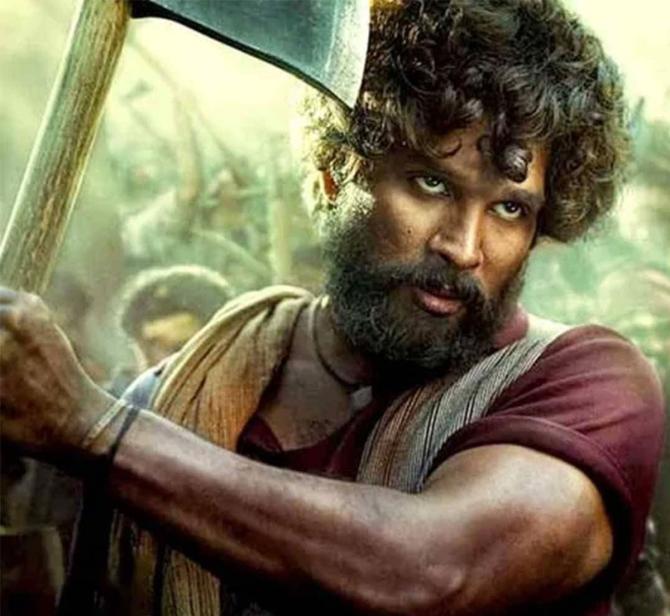
The success trend of South Indian movies began with the Baahubali both movies, both of which were roaring successes.
It was followed by K.G.F., Pushpa: The Rise, <em<RRR and K.G.F.: Chapter 2.
"Jersey makers were shivering just seeing the opening day collections of K.G.F.: Chapter 2," says trade analyst Amod Mehra.
The first day collections, according to trade pundit Taran Adarsh, were Rs 134.50 crore (Rs 1.35 billion), breaking all previous records.
The Hindi dubbed version of RRR opened at Rs 20.07 crore (Rs 200.7 million), which was considered a solid start.
"Audiences want good content and South films are giving them wholesome entertainers," says Taran Adarsh.
And the devil is in the details.
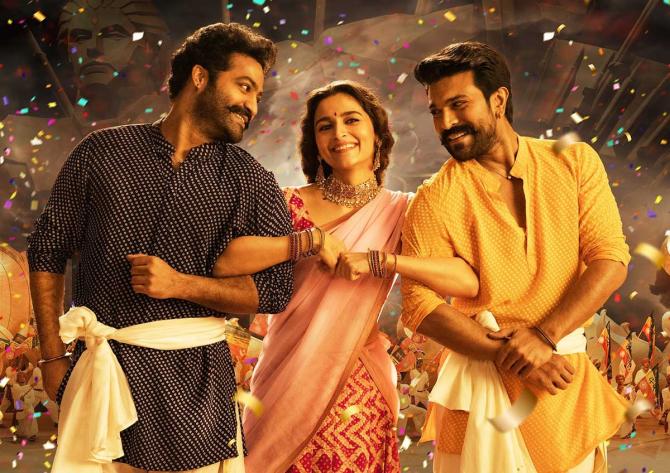
According to IMDB, out of the 10 biggest openers at the box office worldwide, eight films are from South India:
1. RRR: Rs 222.5 crore (Rs 2.25 billion)
2. Baahubali: The Conclusion: Rs 213 crore (Rs 2.13 billion)
3. Saaho: Rs 124.6 crore (Rs 1.246 billion)
4. 2.0: Rs 105.5 crore (Rs 1.055 billion)
5 Kabali: Rs 90 crore (Rs 900 million)
6 Sye Raa Narasimha Reddy: Rs 85.3 crore (Rs 853 million)
7 Thugs of Hindostan: Rs 76.2 crore (Rs 762 million)
8 Baahubali: The Beginning: Rs 73 crore (Rs 730 million)
9 Sarkar: Rs 71.5 crore (Rs 715 million)
10 Sultan: Rs 71.3 crore (Rs 713 million)
The South Indian films do get an advantage over Hindi films because they are dubbed in multiple languages like Hindi, Telugu, Tamil, Malayalam and Kannada. They have a good fan following in the NRI market too.
A week before the release of K.G.F.: Chapter 2, the Hindi dubbed version of RRR touched Rs 250 crore (Rs 2.5 billion) at the box office.
The south film industry is giving Bollywood the jitters as they do not know what the future holds for them.
"K.G.F. 2 was a mighty opponent for Jersey. It was like standing in front of a tsunami. They would have been swept away," Taran Adarsh says. "I told the producers of Jersey that they need to shift the dates but they didn't do it. When they saw the advance bookings for K.G.F. 2, they decided to release the movie a week later."
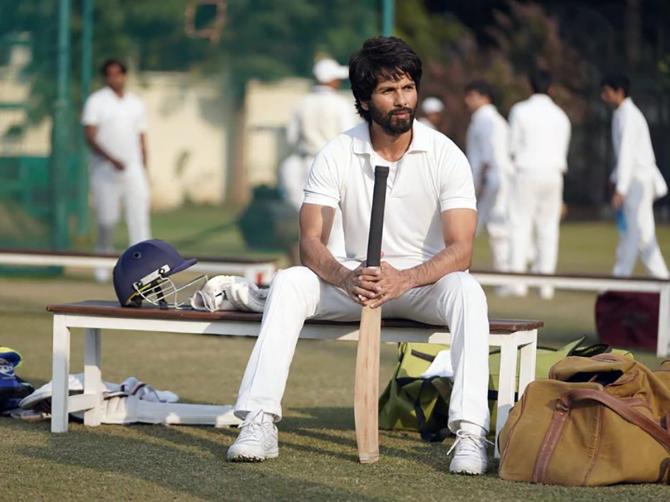
"The message is clear. Hindi movie goers are tired of Shah Rukh Khan, Salman Khan and Akshay Kumar. The flavour of season is South Indian movies," Amod Mehra says.
He can't resist taking a dig at Sunny Deol: "Look at Sunny Deol. He is 65 and still wants to play a hero. When will you retire and do character roles like Amitabh Bachchan?"
"Bollywood is making movies for the suburban Mumbai crowd of Bandra to Versova (both in north west Mumbai). What will the rest of India watch?" Taran Adarsh asks. "That space has been taken over by South Indian movies."

Now, advertisers are tapping South Indian stars to endorse products in Mumbai.
RRR's Ram Charan is seen on the city's billboards with his co-star, Alia Bhatt, advertising Frooti.
"When Ram Charan came to our theatres at Gaiety-Galaxy in Bandra, he was mobbed! He was accompanied by NTR Jr and the crowd was overjoyed to see the RRR stars in Mumbai," says Manoj Desai, Executive Director of G-7 multiplex and Maratha Mandir cinema.
"South movies have the perfect script, the perfect action and the perfect romance. That's why these films are running in theatres. I have a 1,000-seater theatre and the seats get sold for dubbed South Indian films. It's not happening for Hindi films," says Desai.
When asked why, Desai explains, "Hindi films had its time when there were directors like Manmohan Desai, Prakash Mehra and Yash Chopra. We don't have these kinds of film-makers left in the industry now. Even if they do exist, they are making senseless films."
"Bollywood is not making family movies or movies with masala entertainment," Mehra puts in. "They are making movies like Housefull thinking that is a family film. It is not. It is buffoonery."
"The entry of South Indian films came via satellite channels, thanks to Manish Shah. He was a visionary and opened the doors for South Indian-dubbed films for satellite audiences, which became huge in a decade. Now, the same audiences are coming to theatres to watch dubbed South Indian movies."
Manish Shah of Goldmines Telefilms has an 80 percent market share of South Indian dubbed films.
He started by bagging the satellite film rights of the Nagarjuna 2004 movie The Mass . Subsequently, he controlled the satellite rights of almost every South Indian film telecast on cable television.
Shah also envisioned the release the dubbed version of Pushpa: The Rise in December 2021, and the rest is history.
After the success of Pushpa, Allu Arjun praised Manish Shah, saying, 'Manish Shah is the pioneer, who brought South Indian films to the North Indian market. Thank you Manishji for making us popular in North India.'
"Now, the barrier is broken. There are no South films or Hindi films. Now, it is the Indian film industry. We should be proud about that," adds Mehra.
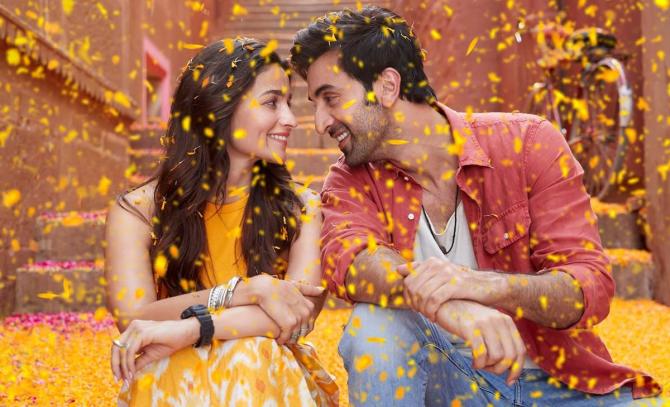
But all is not lost for Hindi cinema, feels Ranjan Singh, CEO, Good Bad Films.
"This is the phase for South Indian films. It's not that Hindi film-makers are not trying to make mass entertainer films. They are, like Kabir Khan's '83. But that did not do well at the box office."
"If you go by the argument that all South Indian films are working, why did Prabhas' Radhe Shyam flop?" he asks. "So, it's not the South Indian heroes that are working, but the grandeur of the films."
Mehra agrees with Singh: "The success ratio of South Indian films at the box office is 15 percent. It means only 15 movies are working out of 100 releases. The same trend is seen in Hindi films too."
"The South Indian films that are working at box office are big spectacle films," Singh says. "These kinds of films were coming to India from Hollywood like Spiderman. But now, they are coming from South India. S S Rajamouli has become the answer to Marvel movies for Indian audiences."
"I am sure Hindi film-makers will also make such big, spectacle films," says Singh. "The process has already started with Brahmastra, starring Ranbir Kapoor and Alia Bhatt."
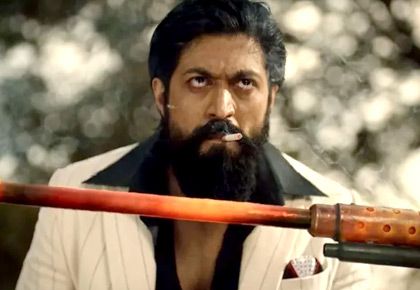
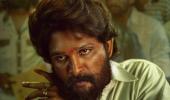









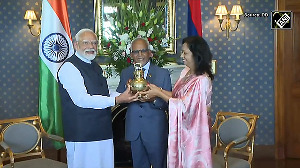
 © 2025
© 2025